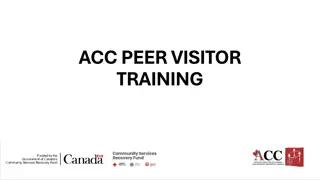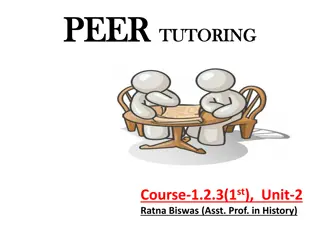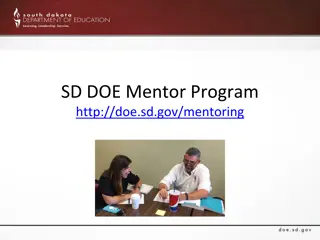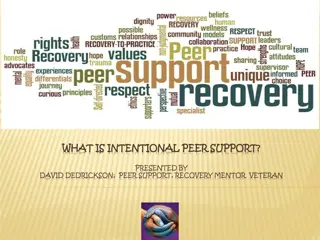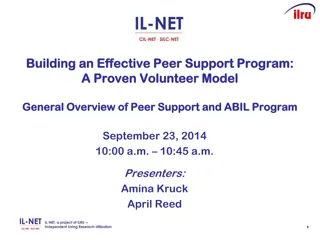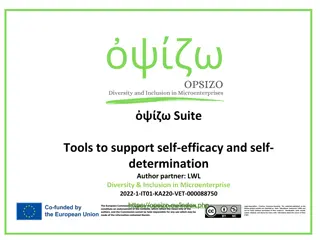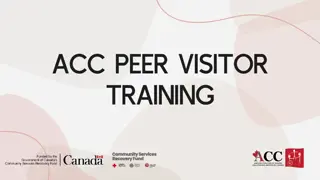Peer Mentor Training and Self-Determination Support Overview
Explore the world of peer mentor training and self-determination support through images and detailed explanations. Discover the role of peer mentors in fostering self-determination, communication skills, and active listening techniques. Learn how to empower mentees to be self-determined and make informed choices with guidance from peers, professionals, family, and friends.
Download Presentation

Please find below an Image/Link to download the presentation.
The content on the website is provided AS IS for your information and personal use only. It may not be sold, licensed, or shared on other websites without obtaining consent from the author. Download presentation by click this link. If you encounter any issues during the download, it is possible that the publisher has removed the file from their server.
E N D
Presentation Transcript
Peer Mentor Training October, 2010
Thinking about Transition. What kinds of feelings did you experience? What did people who were paid to help you do that was helpful? How did they get in your way? What did family and friends do that was helpful? How did they get in your way?
What is Self-Determination? What words come to mind when you hear the term, self-determination ?
A Model of Self-Determination ACT Self- EXPERIENCE OUTCOMES Self- determined role Communication Patterns determination is the ability to identify and achieve goals based on a foundation of knowing and valuing oneself. models AND LEARN PLAN Instruction and support Availability of student supports Opportunities for choice KNOW YOURSELF and YOUR ENVIRONMENTVALUE YOURSELF Field & Hoffman (1994, 2006)
How can peer mentors support self- determination? Be a self-determined role model. Help mentees develop skills for self- determination. Give mentees opportunities to make choices. Use communication styles that help mentees think about what they want, why they want it and what action they want to take. Help mentees find supports that they need.
Peer Mentor Training Segment two: Communication Skills
Ways of Listening Four ways of listening
Listening to get it from the other person s point of view Ask what questions Listen actively. Tell person what you heard them say. Ask if it is correct. Ask logistics questions (How, when, where, who)
Powerful Questions Narrow Questions Powerful Questions Why did you decide to attend to Wayne State? What are you moving towards in college? How can you raise your GPA to a 3.0 without studying harder? What risks are you willing to take to experience more success? Did your math tutor tell you to do? How can you prepare for that Calculus exam effectively?
What Questions Examples: If you accomplished your goal, what would it look like? (outcome) What is your backup plan? (anticipation) What resources do you need to help you decide? (resources) What do you think that means? (evaluation) What other approaches can you think of? (exploration) If we could wipe the slate clean, what would you do? (learning) What if you do and what if you don t? (options) What could I ask you right now that would be helpful? - The Coaches Training Institute






